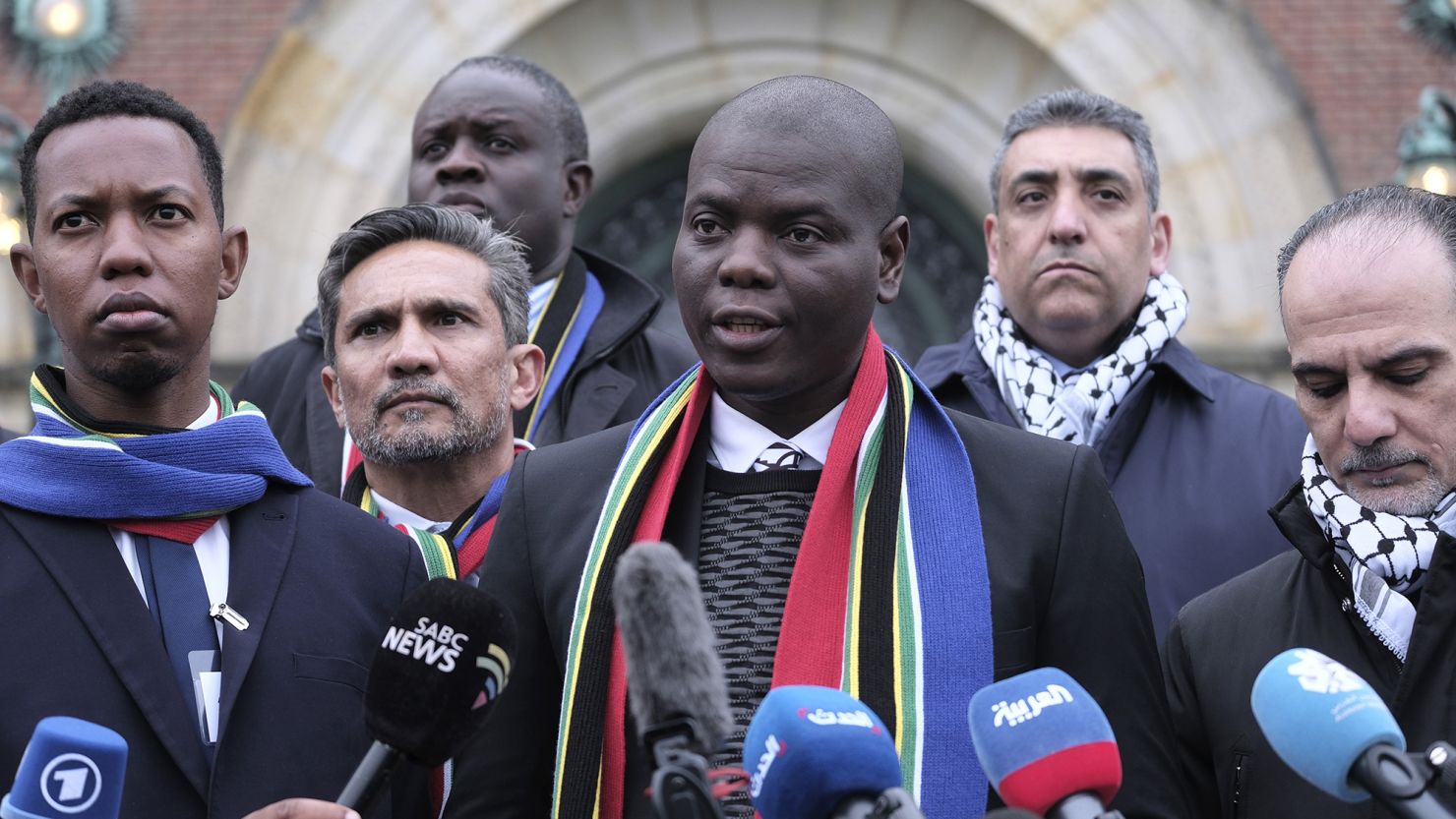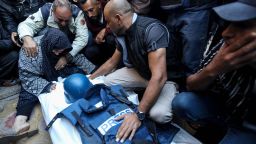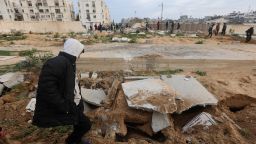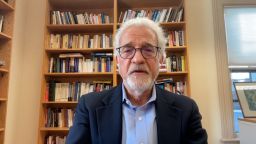Editor’s Note: A version of this story appears in CNN’s Meanwhile in the Middle East newsletter, a three-times-a-week look inside the region’s biggest stories. Sign up here.
When members of the legal team representing South Africa in its case against Israel at the International Court of Justice (ICJ) arrived home this week, they were mobbed like rockstars by a crowd gathered at an airport in Johannesburg, waving South African and Palestinian flags.
Many expressed collective pride at how the case was presented. One of the activists greeting the lawyers lauded them for “having the courage to take Israel to the ICJ when no one else had that courage.”
In a case brought before the court in The Hague in December, the team argued that Israel had violated its obligations under the 1948 Genocide Convention in its war with Hamas in Gaza – a charge Israel has strongly denied.
Hailed as heroes in the pursuit of justice, the multi-racial team of lawyers symbolized South Africa’s “Rainbow Nation” ethos that celebrates its diversity, and has allowed the country to flex its diplomatic muscle as a moral arbiter on global issues, three decades post-apartheid.
“The significance of the fact that the country bringing the case is South Africa – an icon of the ravages of colonialism, settlement and apartheid – cannot be lost on anyone,” wrote Nesrine Malik, a Sudanese journalist and author, in The Guardian newspaper. “It symbolizes a vast racial injustice, too raw and recent to be dismissed as ancient history.”
Israel saw the racial symbolism quite differently, with Prime Minister Benjamin Netanyahu accusing South Africa of “hypocrisy” that “screams to the high heavens.” Hamas had carried out “the worst crime against the Jewish people since the Holocaust,” he said in a televised speech, but “now someone comes to defend it in the name of the Holocaust.”
Israel launched its war against Hamas after the group’s brutal attack on the country left roughly 1,200 people dead and 250 taken hostage. The subsequent Israeli assault on Gaza has so far killed more than 24,000 people, according to the Hamas-run health ministry there.
South Africa’s genocide case has put the spotlight on a deeper fault line in global geopolitics. Beyond the courtroom drama, experts say divisions over the war in Gaza symbolize a widening gap between Israel and its traditional Western allies, notably the United States and Europe, and a group of nations known as the Global South — countries located primarily in the southern hemisphere, often characterized by lower income levels and developing economies.
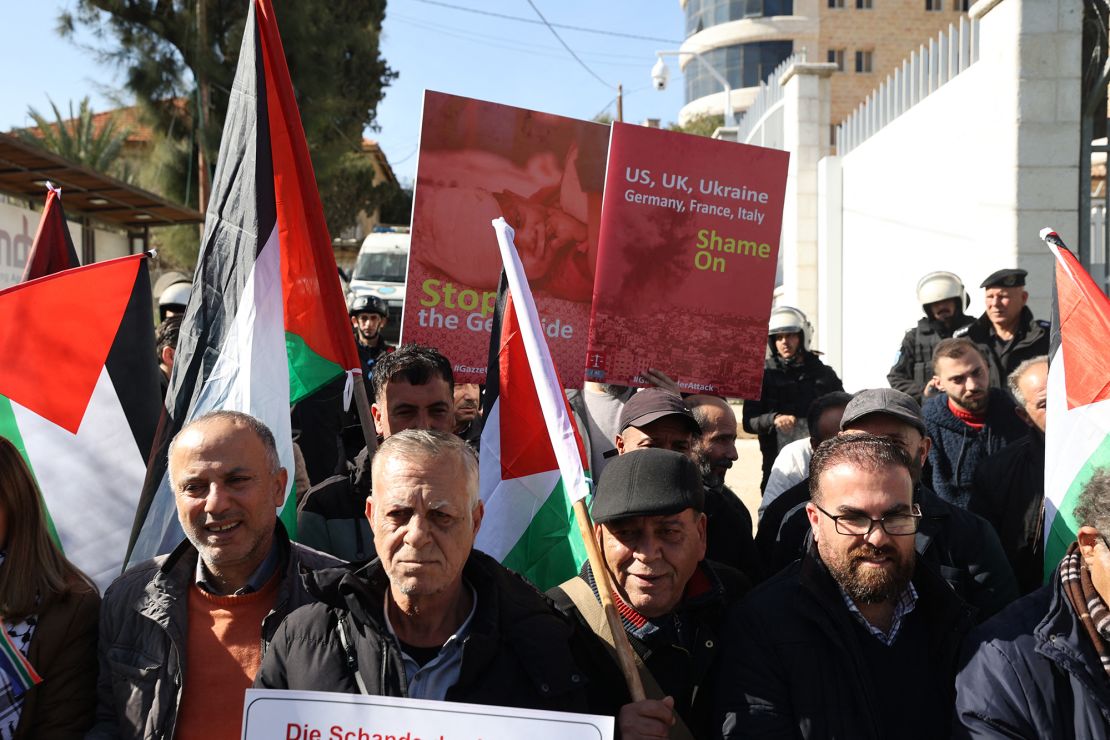
Reactions from the Global North to the ICJ case have been mixed. While some nations have maintained a cautious diplomatic stance, others, particularly Israel’s staunchest allies in the West, have criticized South Africa’s move.
The US has stood by Israel through the war by continuing to ship arms to it, opposing a ceasefire, and vetoing many UN Security Council resolutions that aimed to bring a halt to the fighting. The Biden administration has rubbished the claim that Israel is committing genocide as “meritless,” while the UK has refused to back South Africa.
“The Israel-Gaza war and its subsequent events like this case are highlighting growing fissures between the once dominant West and its key allies like Israel and emerging powers gathered around BRICS states like South Africa,” Remi Adekoya, a political lecturer at the University of York in England, told CNN.
The decision by South Africa to initiate legal proceedings against Israel at the ICJ marked a departure from the usual diplomatic channels taken in such disputes, as the angry voices against Israel’s campaign in Gaza grow louder.
As a nation whose history is rooted in overcoming apartheid, South Africa’s move carries symbolic weight that has resonated with other nations in the developing world, many of whom have faced the burden of oppression and colonialism from Western powers.
Nelson Mandela, the face of the anti-apartheid movement, was a staunch supporter of the Palestine Liberation Organization and its leader Yasser Arafat, saying in 1990: “We align ourselves with the PLO because, akin to our struggle, they advocate for the right of self-determination.”
Hugh Lovatt, a senior policy fellow with the Middle East and North Africa Programme at the European Council on Foreign Relations, said that while South Africa’s case is a continuation of its long-standing pro-Palestinian sympathies, the countries that have rallied behind it show deeper frustrations by the Global South.
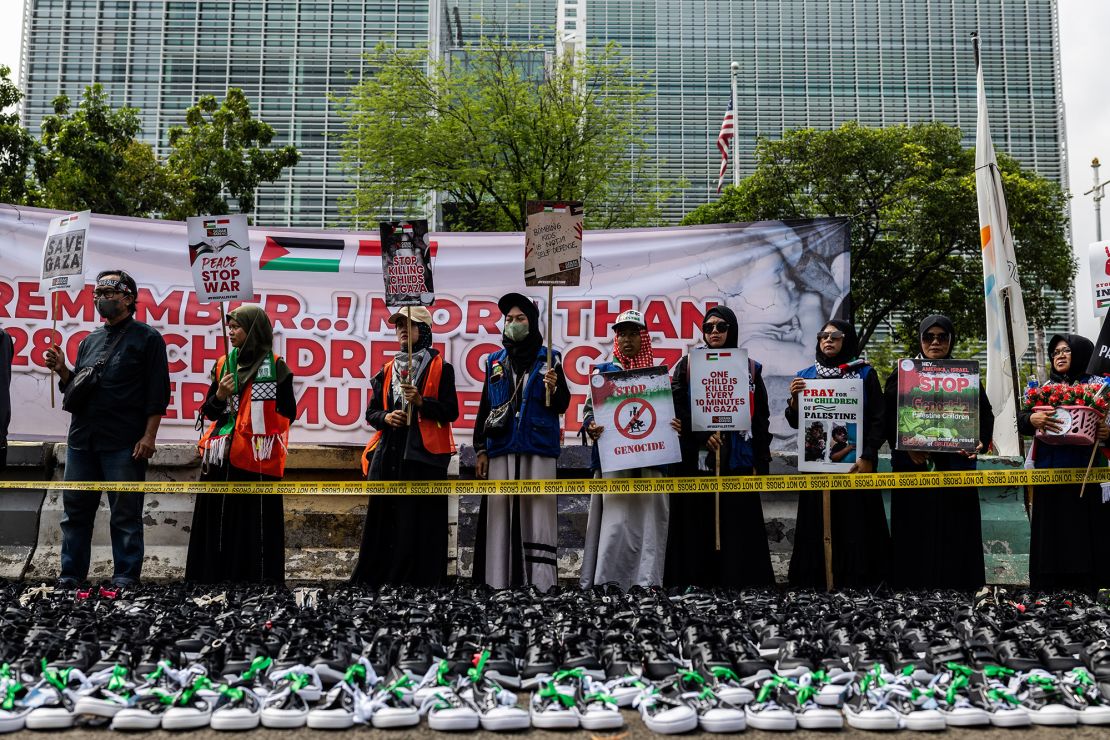
There is “a clear geopolitical context in which many countries from the Global South have been increasingly critical over what they see as a lack of Western pressure on Israel to prevent such a large-scale loss of life in Gaza and its double standards when it comes to international law,” Lovatt told CNN.
Much of the non-Western world opposes the war in Gaza; China has joined the 22-member Arab League in calling for a ceasefire, while several Latin American nations have expelled Israeli diplomats in protest, and several Asian and African countries have joined Muslim and Arab nations in backing South Africa’s case against Israel at the ICJ.
For many in the developing world, the ICJ case has become a focal point for questioning the moral authority of the West and what is seen as the hypocrisy of the world’s most powerful nations and their unwillingness to hold Israel to account.
One of the reasons for this is that Israel has long been a “Western-facing country by virtue of its history and predominant heritage,” said Lovatt.
Israel sided with the West against Soviet-backed Arab regimes during the Cold War, and Western countries largely view it “as a fellow member of the liberal democratic club,” he added. “Some of this explains the continued strong Western support for Israel – which has now largely become reflexive.”
“But the strong support of Western governments is increasingly at odds with the attitudes of Western publics which continue to shift away from Israel,” Lovatt said.
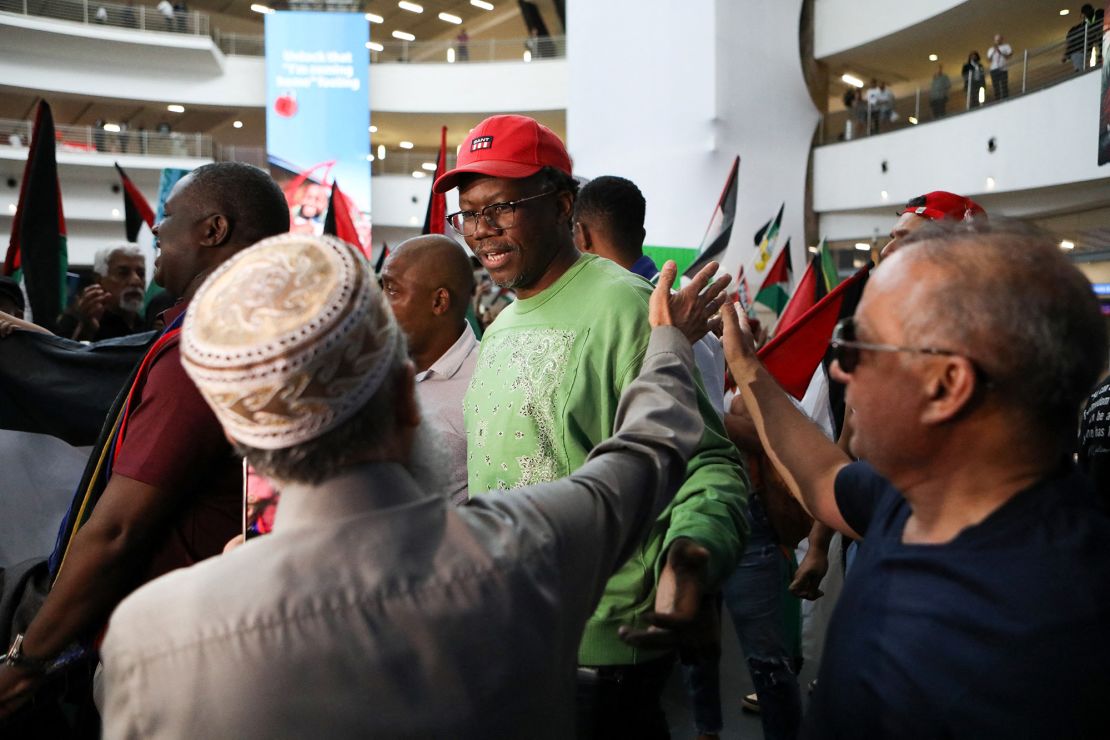
Clash of civilizations?
Israel has framed the war in Gaza as a clash of civilizations where it is acting as the guardian of Western values that it says are facing an existential threat.
“This war is a war that is not only between Israel and Hamas,” Israeli President Isaac Herzog told MSNBC in December. “It’s a war that is intended – really, truly – to save Western civilization, to save the values of Western civilization.”
So far, no Western countries have supported South Africa’s case against Israel.
Among Western states, Germany has been one of the most vocal supporters of Israel’s campaign in Gaza. The German government has said it “expressly rejects” allegations that Israel is committing genocide in Gaza and that it plans to intervene as a third party on its behalf at the ICJ.
An opinion poll by German broadcaster ZDF this week however found that 61% of Germans do not consider Israel’s military operation in the Gaza Strip as justified in light of the civilian casualties. Only 25% voiced support for Israel’s offensive.
But it is in Germany’s former colonial territory, Namibia, that it has attracted the fiercest criticism.
The Namibian President Hage Geingob in a statement on Saturday chided Berlin’s decision to reject the ICJ case, accusing it of committing “the first genocide of the 20th century in 1904-1908, in which tens of thousands of innocent Namibians died in the most inhumane and brutal conditions.” The statement added that the German government had not yet fully atoned for the killings.
Bangladesh, where up to three million people were killed during the country’s war of independence from Pakistan in the 1970s, has gone a step further to file a declaration of intervention in the ICJ case to back South Africa’s claims, according to the Dhaka Tribune.
A declaration of intervention allows a state that is not party to the proceedings to present its observations to the court.
“With Germany siding with Israel, and Bangladesh and Namibia backing South Africa at the ICJ, the geopolitical divide between the Global South and the West appears to be deepening,” Lovatt said.
Traditionally, the West has wielded significant influence in international affairs, but South Africa’s move signals a growing assertiveness among Global South nations that threatens the status quo, says Adekoya.
“One clear pattern emerging is that the old Western-dominated order is increasingly being challenged, a situation likely to only further intensify as the West loses its once unassailably dominant economic position,” Adekoya said.

